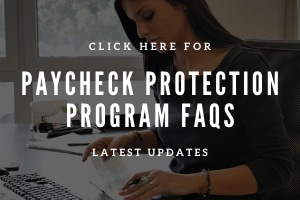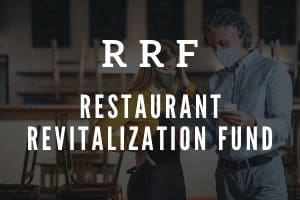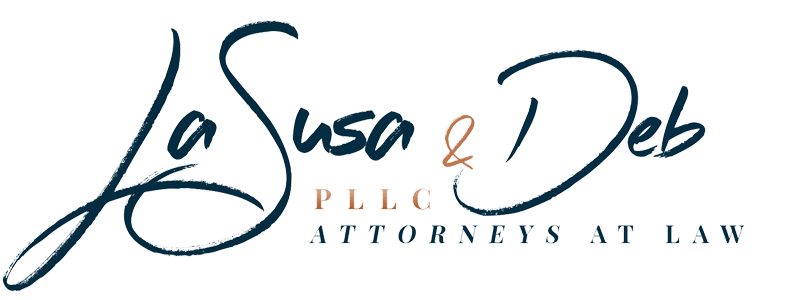If you have received government funds through one of the SBA loan programs, then you should know that these loans will be audited. The federal government has set up a special department called the Special Inspector General for Pandemic Relief (SIGPR). This department audits pandemic relief programs and prosecutes businesses and individuals for fraud, waste, or abuse.
What do you need to know and how can you stay out of trouble?
The Special Inspector General for Pandemic Relief (SIGPR) will be auditing and reviewing the SBA pandemic relief loans and looking for fraud, waste, or abuse. They will prosecute civil and criminal cases against individuals.
What are some examples of fraud, waste, and abuse?
Fraud, waste, and abuse can mean any number of things including, but not limited to, the following:
- Not properly disclosing information on the other businesses you own in accordance with the SBA affiliate disclosure requirements
- Applying for multiple loans for the same business under different names
- Inflating your Average Monthly Payroll calculation
- Not using your SBA funds for the program’s intended purposes
- Not keeping the appropriate records to be in compliance with your SBA loan requirements
- Not being truthful about the number of employees you have
- Not disclosing receipt of SBA loan funds in an application for additional loan funds
- Not notifying the SBA of a restricting or sale of the business, and much more.
What is the best course of action for avoiding trouble in an audit?
The best preventative actions you can take are ones you take before the audit.
- Be truthful and honest in all of your application paperwork.
- If you have made a mistake, disclose it to the SBA and if necessary, to SIGPR immediately.
- Work with an attorney in making the self-disclosure.
We expect the Special Inspector General’s office to be lenient with those who self-disclose. Once you receive funds:
- Make sure you are familiar with all of the terms of your loan and or grant.
- Make sure you spend funds in compliance with the program.
- Document how you are spending the funds so you have proof.
- Submit follow-up documentation to the SBA as appropriate.
- And reach out if you have any questions or concerns.
We know these programs are constantly changing and developing and that can be overwhelming especially with the added stress of the pandemic.
It is important, however, that you keep current with all the programs you have received money from so that you can be in compliance. In addition, you can have the documentation you need in the instance of an audit.
LaSusa & Deb, PLLC is here to be a resource for our clients and for the fellow members of our community. Do not hesitate to give us a call at 214-584-6505.
If you have received government funds through one of the SBA loan programs, then you should know that these loans will be audited. The federal government has set up a special department called the Special Inspector General for Pandemic Relief (SIGPR). This department audits pandemic relief programs and prosecutes businesses and individuals for fraud, waste, or abuse.
What do you need to know and how can you stay out of trouble?
The Special Inspector General for Pandemic Relief (SIGPR) will be auditing and reviewing the SBA pandemic relief loans and looking for fraud, waste, or abuse. They will prosecute civil and criminal cases against individuals.
What are some examples of fraud, waste, and abuse?
Fraud, waste, and abuse can mean any number of things including, but not limited to, the following:
- Not properly disclosing information on the other businesses you own in accordance with the SBA affiliate disclosure requirements
- Applying for multiple loans for the same business under different names
- Inflating your Average Monthly Payroll calculation
- Not using your SBA funds for the program’s intended purposes
- Not keeping the appropriate records to be in compliance with your SBA loan requirements
- Not being truthful about the number of employees you have
- Not disclosing receipt of SBA loan funds in an application for additional loan funds
- Not notifying the SBA of a restricting or sale of the business, and much more.
What is the best course of action for avoiding trouble in an audit?
The best preventative actions you can take are ones you take before the audit.
- Be truthful and honest in all of your application paperwork.
- If you have made a mistake, disclose it to the SBA and if necessary, to SIGPR immediately.
- Work with an attorney in making the self-disclosure.
- Larger and midsized companies should have a corporate compliance program
- Avoid double dipping or dipping for multiple times
- Don’t take money and use money multiple times for the same purpose
- Create a clear audit trail
- Keep ALL records
We expect the Special Inspector General’s office to be lenient with those who self-disclose. Once you receive funds:
- Make sure you are familiar with all of the terms of your loan and or grant.
- Make sure you spend funds in compliance with the program.
- Document how you are spending the funds so you have proof.
- Submit follow-up documentation to the SBA as appropriate.
- And reach out if you have any questions or concerns.
We know these programs are constantly changing and developing and that can be overwhelming especially with the added stress of the pandemic.
It is important, however, that you keep current with all the programs you have received money from so that you can be in compliance. In addition, you can have the documentation you need in the instance of an audit.
LaSusa & Deb, PLLC is here to be a resource for our clients and for the fellow members of our community. Do not hesitate to give us a call at 214-584-6505.
Get Updates on The CARES Act
For business owners and nonprofits, stay updated with information relating to The CARES Act and SBA Disaster Relief Loans.
Subscribe for Updates




